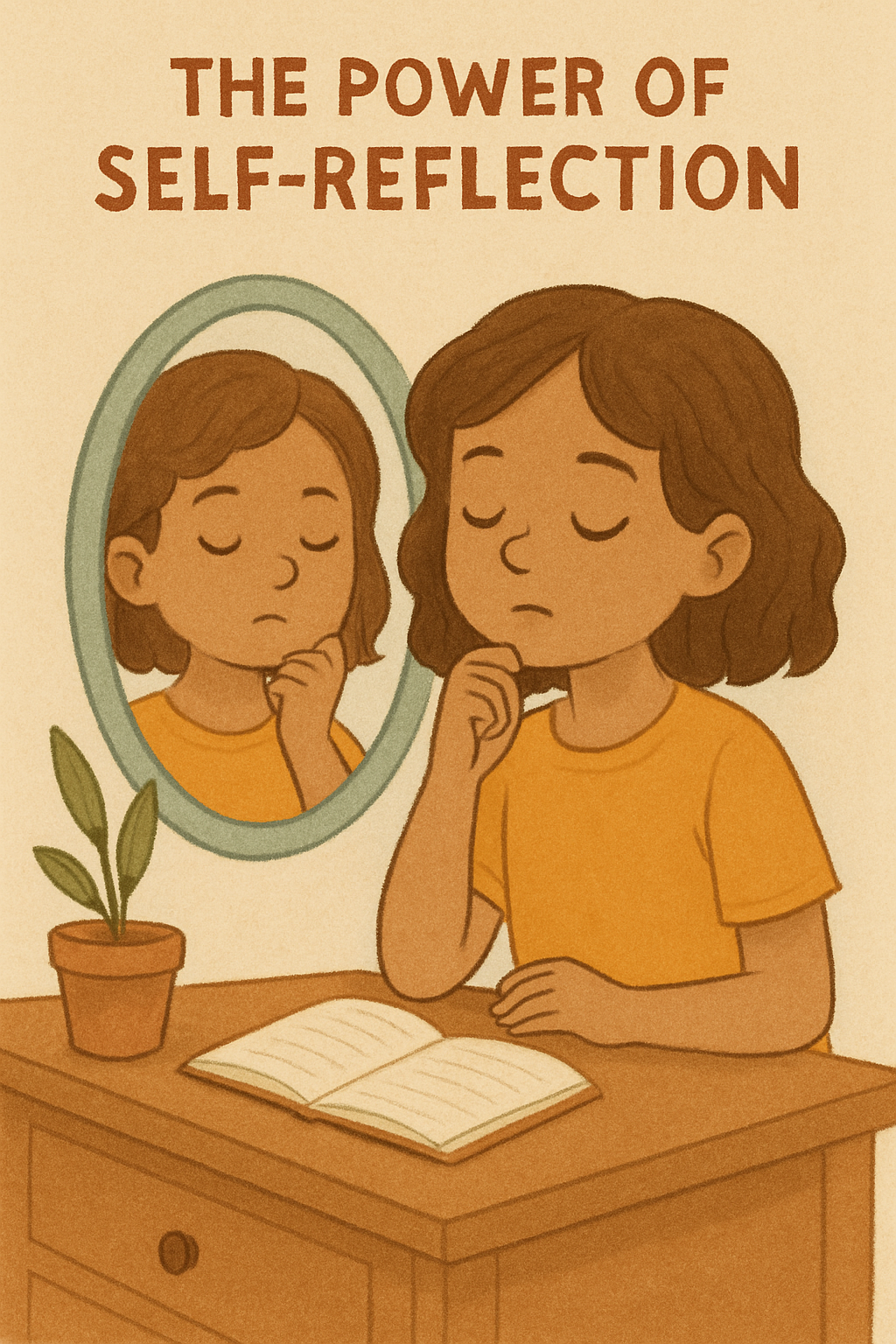Your basket is currently empty!

Teaching Kids the Power of Looking Back
Reflection gives children a unique chance to learn about themselves. When they pause and look back at their day, they don’t just see what happened; they notice how they responded, why they felt certain ways, and what they might try differently next time. Because of this, reflection for kids builds confidence, resilience, and responsibility.
Mindfulness encourages children to slow down and notice their choices. Reflection goes a step further by helping them learn from those choices. For example, a child might recognise, “I felt nervous before my presentation, but I spoke clearly anyway.” In that moment, they celebrate a small win. Over time, these recognitions reinforce a growth mindset.
Benefits of Reflection for Kids
Reflection doesn’t just help children feel good—rather, it gives them tools for growth:
- Boosts self-confidence – When kids notice what they did well, they start believing more in their own ability.
- Builds resilience – Spotting challenges alongside successes teaches them that setbacks are part of learning.
- Encourages responsibility – Children grow more thoughtful about their choices when they realise how those affect themselves and others.
- Promotes self-awareness – Reflection helps kids understand their emotions, reactions, and patterns.
- Instils a growth mindset – Awakening awareness of progress (no matter how small) encourages children to view effort as worthwhile.
Reflection Activities & Practices
To help children practise reflection in ways that feel natural and enjoyable, try these:
- Daily reflection prompts
Ask at the end of the day: “What went well today?” “What could I try differently tomorrow?” This simple habit helps kids notice wins and opportunities for growth. - Journaling for progress
Use a journal to record victories, challenges, feelings, and decisions. Our Feelings Journal gives prompts and space to explore both success and areas to improve. - Highlight and challenge sharing
During family time or in class, children can share one highlight and one challenge. Meanwhile, others can reflect on how they reacted in similar situations. - Drawing the day
Drawing pictures of their day—especially difficult moments—can help children process feelings. Then ask: “What would you do differently if you met a challenge like that again?” - Weekly review
At the end of the week, revisit entries in their journals. Look back together: note patterns, growth, moments of courage. This shows kids how far they’ve come.
Overcoming Common Challenges
Reflection isn’t always easy. However, you can help kids benefit even when:
| Challenge | Solution |
|---|---|
| Kids resist reflecting or say “nothing happened” | Use prompts that guide them: “What did you enjoy most today?” or “What made you laugh?” |
| It feels repetitive or boring | Mix methods: writing, drawing, speaking, or using stickers. Make it playful. |
| Kids focus only on negatives | Help them balance: after a challenge, always look for a positive (e.g. “I learned to ask for help”). |
| Journaling feels like a chore | Keep reflection short, and celebrate any effort. Use voice recordings or drawing if writing is hard. |
How to Make Reflection Part of Everyday Life
To help reflection become a lasting habit, try integrating it into the routine:
- Same time daily – like bedtime or post-dinner, when things are calmer.
- Use reflection alongside other mindful habits – combine with nature walks or mindful listening for kids to reinforce awareness.
- Make it shared – parents, siblings, or classmates reflect together so children see role models.
- Keep it visible – display journals, drawings, or sticky notes of reflections where the child can see them often.
Why It Makes a Difference
Reflection transforms everyday moments into meaningful learning. Because children see their own progress, they develop stronger self-belief. They learn they can grow through challenges. Over time, reflection becomes a tool not just for looking back, but for moving forward—with courage, kindness, and confidence.
By encouraging reflection for kids, you help them build a foundation of growth, understanding, and lifelong confidence. Journaling turns fleeting moments into lasting strength., meaningful, and memorable.
Why it matters: Reflection builds self-confidence and teaches children they can grow through challenges. Journaling transforms reflection from a passing thought into a lasting habit of learning and self-belief.them for a lifetime of learning and growth.

